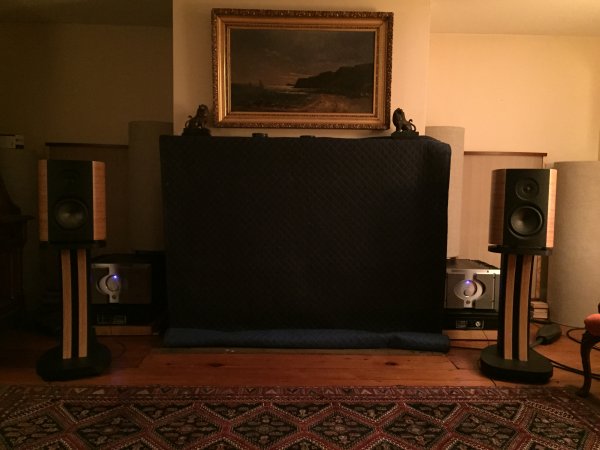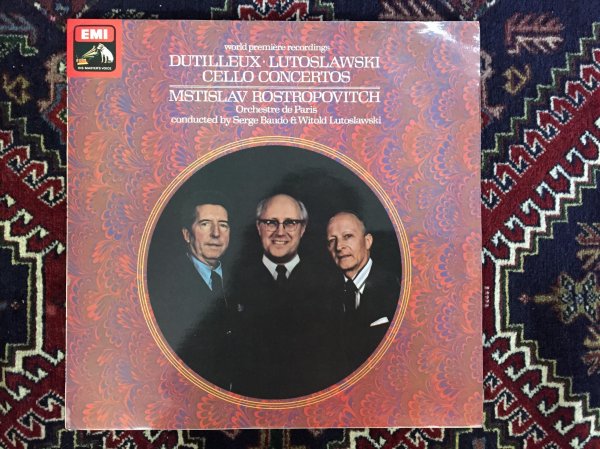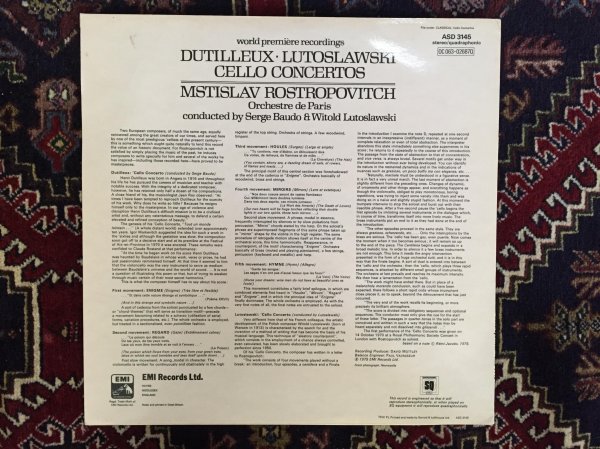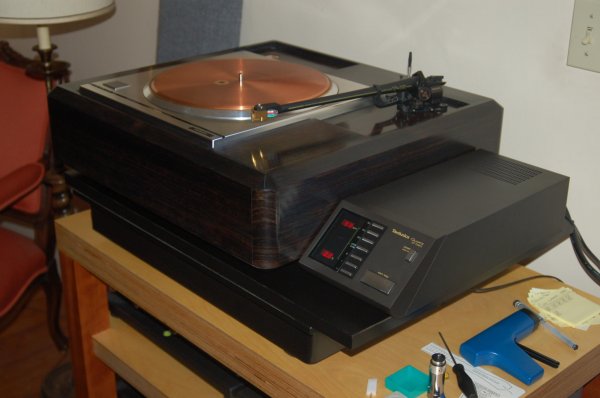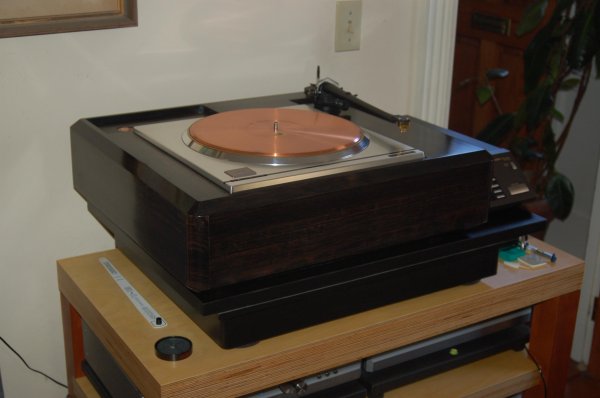Yesterday I was again invited by Peter to listen to his system, after he had made the acoustic improvement to his room that he just described. He also now demagnetizes his records; apparently the carbon used to blacken the vinyl contains traces of metal which, when magnetized, can interfere with the performance of the cartridge (something that has been described in audio publications).
While listening to some music we established that the blanket helped to increase perceived detail and resolution, which apparently had been blurred by reflections around the fireplace. I had experienced something similar with respect to timbral detail when installing ASC window plugs to cover the windows in my room (see my system thread, link in signature). Spatial depth was also improved in Peter's new acoustic setting. While so far on that evening the system had sounded good to very good on the recordings that we listened to, nothing prepared me for what would come next.
Peter played the recording of Dutilleux's cello concerto with Rostropovich as soloist on an EMI LP; Serge Baudo conducts the Orchestre de Paris. The concerto was written for Rostropovich by the composer. Apparently this recording (the other side features Lutoslawski's also great cello concerto, written for Rostropovich by that composer as well) is considered to have one of the best sounds, or the best sound, of cello that you will ever hear on a recording. I had heard the recording before at Peter's place, then also with the My Sonic Labs cartridge, and had been impressed, but this time the reproduction was simply on another level.
The instrument had an incredible presence, as if it was playing right in front of you, and this presence seemed entirely transparent -- it was right there, and seemed not even slightly veiled through the recording/playback chain. The resonances of the wooden body of the cello were portrayed with an unbelievable realism, down to the low frequencies (no sub required), and the rosiny string tone was strikingly reminiscent of some live performances with cello solo that I have heard. The reproduction was so faithful to the immense detail of string tone heard from an actual cello that it was simply stunning -- the timbral resolution was of the highest order, and transients were effortlessly fast. It was breathtaking just how realistically the system portrayed the sheer physical energy and heft of an actual cello playing just a dozen or so feet away from you, and the plucking of the strings heard on many occasions through the piece had an enormous dynamic 'jump factor' and physically palpable force that had to be heard to be believed. There was an unbroken continuum of musical energy from the low to the high register of the cello. The drama of the reproduction was spellbinding. It was simply astonishing how the speakers could so faithfully portray the hefty physical excursions and wooden resonances of the instrument while fully and completely keeping their composure, without adding any perceived colorations. Overall, the sound was as alive as I have ever experienced from a stereo system.
The orchestral sound had appropriate bite, and physical force as well; some of the transients on metallic instruments of lower register (featuring tubes or plates I assume) had an enormous energy. The orchestral strings play in this piece often with a mysterious tone that was portrayed with great detail and air. Overall, the dichotomy of mystery and turbulent drama in this cello concerto was highlighted more than I had heard before. The orchestral sound projected very well into the room and convincingly filled it acoustically; the surges of the orchestra were expansive and dramatic. The tense energy, drama and vividness of the orchestral sound almost made me forget that there were obvious physical limitations to the sheer scale of sound compared to a real orchestra playing.
While the cello sound was incredibly realistic in its physical energy and drama, as well as the detail of string sound and the wooden resonances, did the entire sound of the recording create a fully realistic context? Not quite. The cello obviously was close-miked, and portrayed as if you were sitting very close to the instrument in a rather small venue. You could never sit so close to the solo cello in a real performance with a large orchestra in a large hall unless you were actually on stage -- you had the 'best seat' 'that does not exist in a real-world situation. So the recording purposefully creates an alternate reality, but one that seems so believable nonetheless. And the reproduction of that alternate reality was simply breathtaking. The recording reminds me of an episode that, if I remember correctly, went as follows. Herbert von Karajan was once asked if attending a live performance was not better than a recording, and the famous conductor responded, "For whom?".
All in all, on this recording through Peter's system I experienced the most realistic, most convincing portrayal of a close-up solo string instrument on any system. Ever.
While Peter's system in many instances is capable of performance on a very high level, from an overall perspective it is not the best system I have heard. Yet regardless, on this particular recording it delivered the single most impressive audio performance that I have ever heard from any system.
In some sense, after I had left Peter's house I felt as if I just had witnessed a great live performance with a legendary cellist. But I had just been in a not so big house, rather than in a large venue where such a cello concerto would be performed. And the actual performance that I had just heard had been four decades ago. Surreal.


